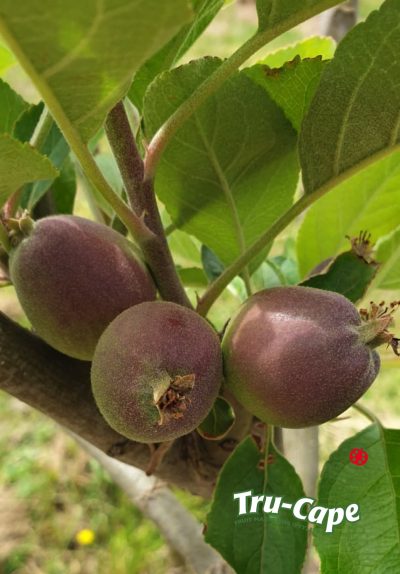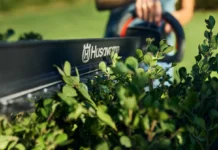The Witte Wijnappel
While we don’t know for how many years the Witte Wijn apple, the first ever apple variety picked in the Cape in 1662, was lost, estimates by Tru-Cape Fruit Marketing’s sleuths suggest it may have been hundreds of years.
Since returning the Witte Wijn apple to The Company’s Garden in Cape Town on April 17, 2019 and planting it at Babylonstoren near Franschhoek the following year and also in the Tru-Cape Heritage Orchard at Oak Valley Estate, in Grabouw, three small apples, each the size of a small marble, have formed on the Witte Wijn apple tree in the Tru-Cape Heritage Orchard at Oak Valley Estate
“This is a very exciting moment in the history of apples in South Africa,” says Buks Nel, who, while being Tru-Cape’s New Variety expert, led, together with Tru-Cape’s Quality Assurance Manager, Henk Griessel, the search to return the Witte Wijn apple to South Africa. Both men also authored two books on the history of apples: Apples in the Early Days at The Cape and, their most recent book about the new varieties, The Newcomers and their Friends.
With the financial support of Hortgro, Tru-Cape imported the plant material from Holland and gifted trees to the City of Cape Town and to Babylonstoren.
Tru-Cape’s Henk Griessel, paraphrasing the April 17, 1662 diary entry by the Dutch Governor of the Cape reports: “Diary Entry: 18/11/2020. Heavy drizzle in the morning and a strong south-easterly wind blowing in from the land. Today the first three Dutch apples were seen in the Tru-Cape Heritage nursery garden. They came from a little tree no more than 7 feet high. This type of apple is known as a Wijnappel. (Underlined text changed from original diary entry). Today, 360 years after the first Wijn apple was first seen on South African soil, it is, again bearing fruit.” Griessel ends.
The Tru-Cape Heritage Orchard at Oak Valley Estate opens just once a year to the public so that fruit enthusiasts can see, touch and taste the earliest varieties and those no longer in commercial production.
While Heritage Orchard visits are free of charge, bookings have to be made via Quicket for either the morning or the afternoon session. “We hope that the Wijn apple will be ready to eat then too,” says Nel.
Griessel has the last word: “Like all Tru-Cape’s marketing efforts and activities that support a healthy lifestyle, this event is something the whole family can do together with plenty of fresh air around us all.” See quicket.co.za or Tru-Cape.com for a link to book








